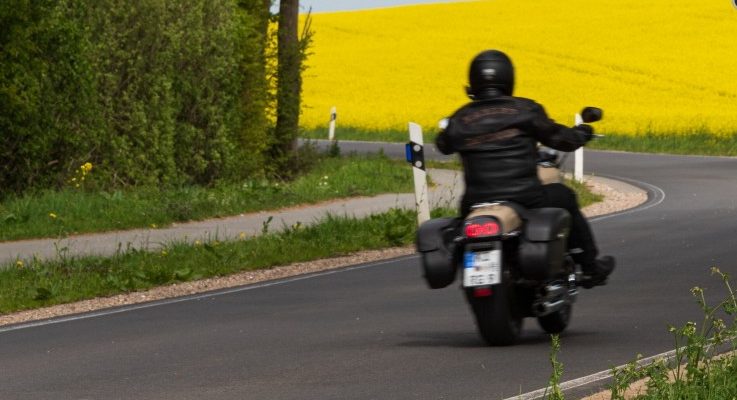The state road 245 leads from Seeburg to Hengen and is considered by motorcycle fans as a route for gourmets. It winds its way up the hills of the Swabian Alb in sweeping curves, with rocks to the left and right that amplify the sound of the engines. And it should sound as beautiful as music to the ears of connoisseurs.
In the ears of the people of Seeburg, on the other hand, the roaring sounds like the arrival of an almost biblical plague that descends on them every spring. Uwe Hölz lives right on the outskirts of town, where motorcyclists really step on the gas. He says that he would actually like to sit in the garden, “but you don’t understand what you say anymore”. That’s how loud it is on nice days, “a catastrophe”.
According to measurements, there are more than 600 motorcycles on many days. Once it was even 1800. That’s why the town of Bad Urach, to which Seeburg belongs, introduced a speed limit especially for motorcycles this spring and put up a new sign. Until September, drivers are only allowed to drive past Uwe Hölz’s garden on weekends and public holidays with a limit of 50.
So while they breathe a sigh of relief in Seeburg for the time being, local politicians elsewhere are wondering how they can dim down the noise from motorcycles. In Baden-Württemberg, the state and local authorities founded an initiative four years ago, which now includes more than 150 towns and municipalities. Popular routes were precisely measured. The result: Every third motorcycle was louder than 90 decibels – this corresponds to a commercially available circular saw.
Many municipalities are trying appeals. Then they put up friendly signs on the side of the road (“Please, be quiet”, “Be considerate”), the only downside of which is that the target group often ignores them. A speed limit for motorcyclists, as now in Bad Urach, is considered more promising. Even speeders don’t like speeding tickets.
However, sometimes communities feel compelled to take radical steps. Like in the southern Black Forest, where the popular Randen climb has been partially closed on weekends since April. Others are immediately shut down completely – even if the official justification is not always noise, but the risk of accidents: on the Schauinsland route near Freiburg, no motorcycles have been allowed to drive on weekends between April and November since 1984. And in Upper Bavaria, driving up the Kesselberg between 3 p.m. and 10 p.m. is generally forbidden this summer.
Such cuts are legally complicated. “The road traffic regulations have the ease of traffic as a principle,” says Elke Zimmer, Baden-Württemberg’s green state secretary for transport. The health of local residents is a secondary priority. The city even had to fight hard for Seeburg’s minimally invasive intervention – a speed limit of 300 meters. She had to prove that the district is unusually heavily polluted. There were always measurements. How many vehicles? How loud? How fast? Only when it was clear that the noise was unacceptable was she allowed to put up the longed-for sign.

